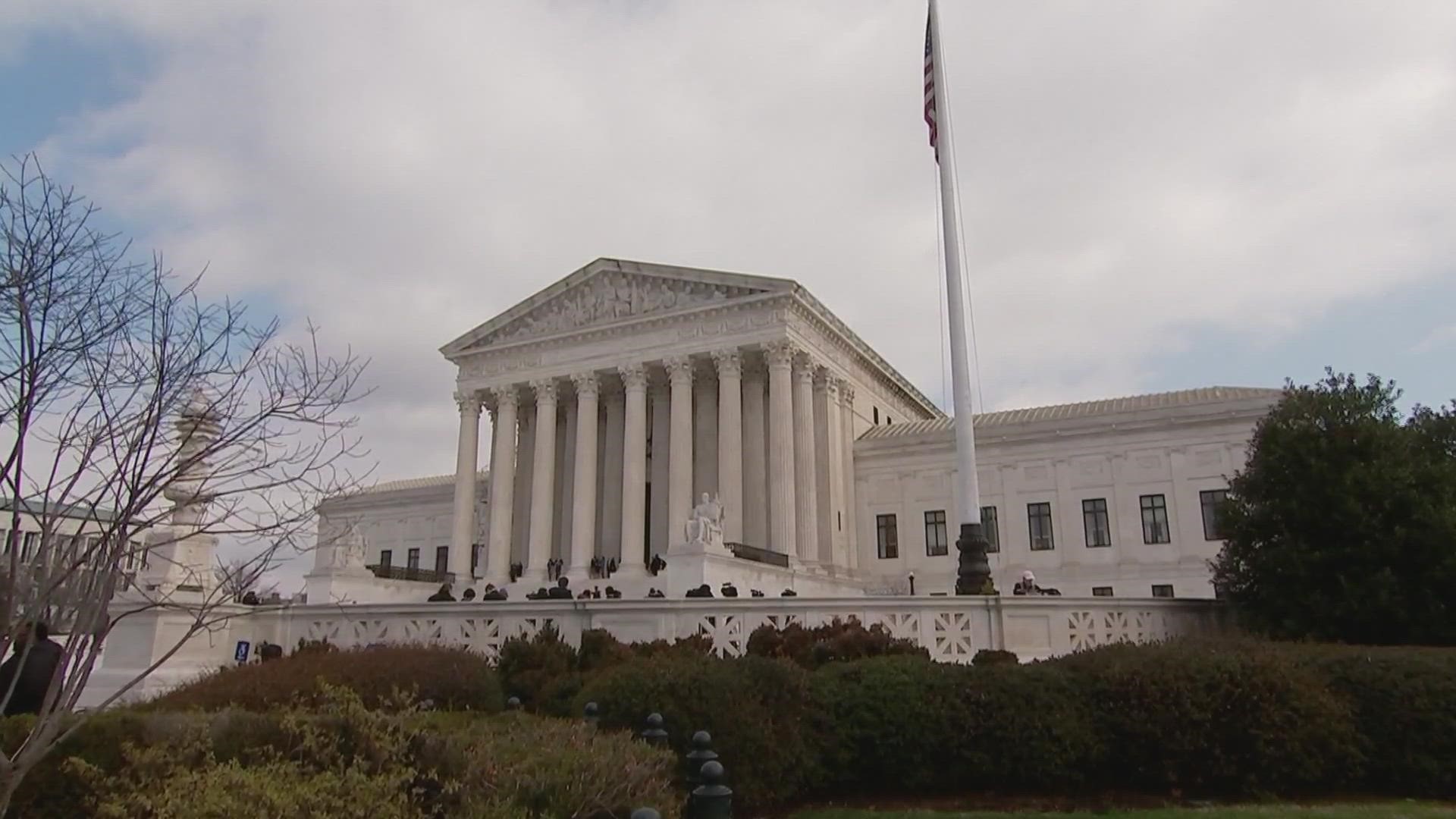ST. LOUIS, Missouri — Missouri and its nonprofit student loan corporation, the Missouri Higher Education Loan Authority (MOHELA), were at the center of a high-stakes legal battle before the U.S. Supreme Court on Tuesday.
Justices on the conservative-leaning court considered the financial future for tens of millions of Americans as Republican-led states argued to block President Biden's plan to forgive up to $20,000 in individual student loan debt.
At least 26 million Americans have already applied for the forgiveness plan.
During the arguments, Justice Amy Coney Barrett asked why representatives from MOHELA weren't in the courtroom, perhaps an indication that the court will ultimately rule the state doesn't have standing.
Estimates project the plan could cost $400 billion over a 30-year span.
U.S. Senator Eric Schmitt (R-Missouri) said the president has "no authority to unilaterally cancel nearly a trillion dollars of student loan debt," and warned it would "add to the deficit...and economic woes."
U.S. Rep. Cori Bush (D-Missouri) called those arguments "baseless and politically motivated."
A key factor in the case is whether MOHELA would be harmed if the government forgives the debt. If not, the court may rule Missouri and other states like it don't have standing to bring the legal challenge.
Bush released an October 2022 letter from MOHELA and says their executives told her "they denied involvement in the case...stating that they don't operate to make profits."
Chief Justice John Roberts intimated perhaps the president reached too far and stepped into the constitutional territory reserved for the legislative branch.
"We take very seriously the idea of separation of powers," Roberts said.
"If you're talking about this in the abstract, I think most casual observers would say if you're going to give up that much amount of money, if you're going to affect the obligations of that many Americans on a subject that's of great controversy, they would think that's something for Congress to act on," he said.
The Biden administration defended its use of "national emergency" powers to forgive up to $20,000 dollars in student loans for millions of Americans.
Justice Brett Kavanaugh suggested he's likely to vote against upholding the student loan debt forgiveness plan.
"Some of the biggest mistakes in the court's history were deferring to assertions of executive emergency power," Kavanaugh said. "Some of the finest moments in the court's history were pushing back against presidential assertions of emergency power."
Biden administration lawyers say the plan is legal because it is rooted in a 2003 war-time law Congress passed for national emergencies. The Department of Education says the pandemic was a national emergency, though the government plans to ramp down and phase out its official emergency posture in May. However, they argued the financial impact of the emergency already hit and will continue with a ripple effect for years to come.
If the conservative court ultimately strikes down the forgiveness plan, political organizer Ray Reed, a Gen-Z candidate who ran for Congress in Missouri's Second Congressional District during the 2022 primary, told us the feeling of betrayal will motivate younger voters to make their voices heard at the polls.
"I think it will inspire a lot more young people to run for office," Reed said. "So many young people across the country are tired of politicians making promises and not coming through. So If this were to fail, you'll see it help inspire more young people to run for office themselves to fight for student loan debt forgiveness."
In between meetings on campus at Washington University, Reed described the financial impact debt relief could have on up to 40 million Americans.
"It's huge for all these thousands of kids walking around this college campus," he said. "Forgiving their student debts prevents them from being trapped in a cycle of repaying debt, living paycheck to paycheck. I think it will be huge, and the biggest investment we can make in the middle class of the future."
A decision is expected from the high court sometime in June.

